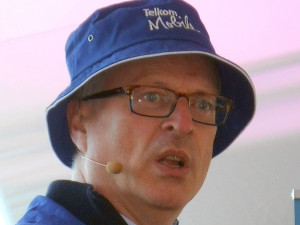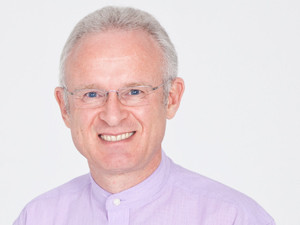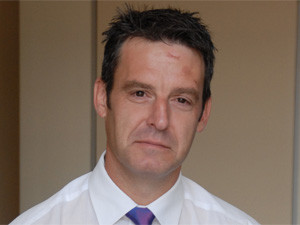
The mobile price war, ignited by Cell C last year when former Vodacom boss Alan Knott-Craig took the reins as CEO, has been revived by SA's last mobile entrant Telkom Mobile.
While analysts are divided on how much of a dent Telkom Mobile's new 29c per minute tariff will be able to make on the market, they are in accord that the operator's latest move has sparked a new wave of mobile markdowns, set to benefit the consumer.
Telkom Mobile yesterday unveiled a new prepaid product, SIM-Sonke, undercutting Cell C's characteristic 99c by 24c. SIM-Sonke offers prepaid customers on-net calls for 29c per minute, and off-net calls - to all mobile networks and landlines - for 75c per minute, on per-second billing.
Consumer champions
Ofentse Mopedi, telecoms analyst at Africa Analysis, says Telkom Mobile's latest move is a revival of the mobile price war, with "consumer champion" Cell C likely to be threatened the most.
"Cell C has been trying to increase its subscriber base by positioning itself as a mobile operator offering the lowest prices in the market. The new offering [from Telkom Mobile] is a threat to this position."
Mopedi says there is a good chance Cell C will react to SIM-Sonke, Telkom Mobile's new prepaid tariff that offers 29c per minute on-net and 75c per minute off-net calls, with "a similar or even lower priced offering".
Other operators, says Mopedi, are also likely to react to the new price plan "to neutralise the impact of the offering". He notes Telkom Mobile previously "successfully introduced" an unlimited calling plan - only to see SA's leading operator Vodacom introduce a similar plan - "with more alluring attributes".
Consumers will consider network quality along with lower prices prior to joining any network, says Ofentse Mopedi, telecoms analyst at Africa Analysis.
World Wide Worx MD Arthur Goldstuck says the new tariff is remarkable for two reasons. "Firstly, it is not a promotional tariff, which means it must have been approved by [the Independent Communications Authority of SA (ICASA)], and was therefore in the works for some time, rather than being a panic reaction to recent [financial] results.
Secondly, says Goldstuck, the new tariff cuts mobile margins to the bone. "The major networks would earn only 35c per minute on off-net calls at this rate, aside from the 29c revenue on-net, meaning they would have to practically halve their existing margins to compete with this rate. That's not going to happen yet."

He says, while Cell C is likely to retort, the operator's network already appears to be overburdened by the success of its lower-priced offerings.
Mopedi says the effect Telkom Mobile's 29c offering will have on the market is questionable, in that it is only applicable to on-net calls, and Telkom Mobile does not have a significant subscriber base.
Last month, Telkom reported it had 1.5 million active mobile subscribers at the end of its financial year - up 3.4% from the previous year.
Ovum analyst Richard Hurst says "this is the next wave of the mobile price war". While voice remains the killer app, he says, SA's consumers can expect to see price cuts being extended to other areas of the mobile service bouquet ? such as data and value-added services.
Gareth Mellon, senior industry analyst for ICT at consulting firm Frost & Sullivan, says Telkom Mobile has been underperforming for a while now, and it makes sense that the company wants to grow subscriber numbers. "However, the prepaid market is very competitive and the margins are relatively low, thus one would not expect such a move to generate significant profits."
The reduction in rates needs to be significant enough to entice switching, says Frost & Sullivan's Gareth Mellon.
Mellon adds, given the market's response to different package deals over the past year, it is evident that pricing is still the most important consideration for many consumers - a fact that stands Telkom Mobile in good stead.
"The reduction in rates needs to be significant enough to entice switching and although the switching cost is relatively low, there is still a degree of 'stickiness' that needs to be overcome."
Mellon says SA's other operators have shown a willingness to respond to price reductions by competitors, with the recent drop in mobile termination rates allowing some room to manoeuvre.

He says Cell C stands to lose the most from Telkom Mobile's hard-line prepaid offering. "Cell C has claimed a fair number of subscribers through its aggressive pricing policy so it stands to lose the most. Price-sensitive, low-margin clients are most likely to shift, so larger operators may be less inclined to respond."
Network quality
Telkom Mobile MD Atilla Vitai says for operators to claim they have a better product to offer due to the quality of their network, is misleading.
"We buy our network from Huawei and Nokia and handsets from Samsung - and our competitors do the same. Consumers should not be misled into believing that one network is dramatically different than the other."
Vitai says Telkom's mobile network reach is extensive, covering all the major metropolitan areas, including Johannesburg, Pretoria, Durban, Cape Town, Bloemfontein, Port Elizabeth and George.
But consumers will always be concerned about network quality, says Mopedi. "[That is why] ICASA has started issuing periodic network quality reports again. Although smaller operators like Cell C are claiming 97% population coverage, the fact is that the coverage is mainly 2G network coverage in remote areas.
"They are still lagging behind Vodacom and MTN in terms of 3G and even LTE coverage. Consumers will consider network quality along with lower prices prior to joining any network."
Goldstuck says, while quality of network is important to mobile consumers, they usually realise this only after they have made a choice based on price. "Telkom's network appears to be robust, so it's a case of getting people to try it, and then a combination of clever marketing and positive word of mouth will be required to achieve scale."
Mellon says a certain level of service coverage and quality is expected by consumers, after which price is the number one consideration.
Hurst says, in his opinion, network quality and quality of service is going to become increasingly important in the battle for market share. "Consumers want ubiquitous high quality coverage and will move away from those operators that fail to deliver this basic service. This I believe is part and parcel of the entire value proposition of the network. What use is it to the consumer if they have low cost calls but no coverage or spotty coverage at best?"
Share